Belarusian dictator Alexander Lukashenko declared himself the victor in the country's latest so-called presidential elections on Jan. 26, in which no political opposition was allowed to take part.
The country's authorities claim Lukashenko won 86.82% of the vote, securing a seventh consecutive term in power.
Despite international condemnation and widespread opposition among Belarusians, Lukashenko's regime has only tightened its control since the last election. Relentless crackdowns on dissent, including mass arrests, imprisonment, and torture, have been ongoing in the country for nearly five years.
Despite international condemnation and widespread opposition among Belarusians, Lukashenko's regime has only tightened its control since the last election.
"Anyone following the situation knows it's a sham election, and for us, Lukashenko has been wholly illegitimate since 2020," Hanna Komar, a Belarusian author who has been living in exile for the past five years, told the Kyiv Independent.
Exiled opposition leader Sviatlana Tsikhanouskaya, widely recognized by election observers as the rightful winner of the 2020 presidential election, publicly condemned the latest so-called vote.
"Lukashenko, propped up by (Russian President Vladimir) Putin, holds nine million Belarusians hostage, drags us into war, and betrays our sovereignty. We will never accept him. He does not represent Belarus. The regime must end its repressions, release political prisoners, and be held accountable for its crimes," Tsikhanouskaya wrote on Jan. 26.
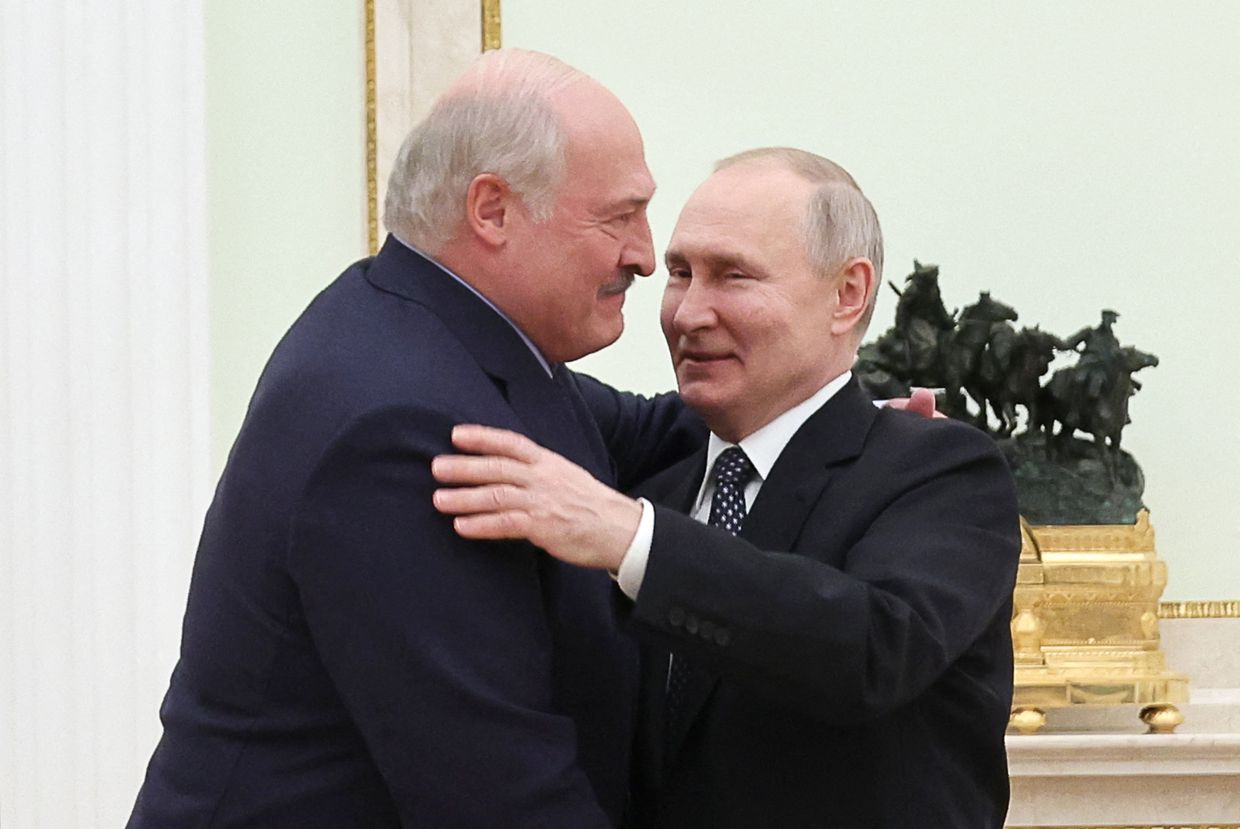
For the more than 500,000 Belarusians who have fled the country since 2020, Lukashenko's latest "victory" serves as a painful reminder of the democratic future they fought for and ultimately failed to secure.
Yet, even in the face of despair, many try to remain hopeful, using the hard-earned lessons of that tumultuous period to strengthen their exile community and continue working toward a future democratic Belarus that they still dream of having.
Point of no return
The 2020 presidential election in Belarus was defined by Tsikhanouskaya's bold challenge to Alexander Lukashenko's decades-long rule. By contrast, the latest so-called election lacked any real opposition, featuring three candidates from pro-government parties and one candidate seen as a figurehead.
In the months leading up to Jan. 26, Lukashenko staged an orchestrated spectacle by pardoning and releasing dozens of political prisoners. Lukashenko framed the move as an act of goodwill toward those who had "gone astray."
However, these individuals had been imprisoned solely for exercising their democratic rights and taking part in the protests against Lukashenko's regime that began in May 2020.
As of December 2024, at least 1,265 political prisoners are known to be held in Belarusian prisons, according to the Belarusian human rights organization Viasna. In December alone, up to 150 politically motivated sentences were handed down, with Belarusians consistently denied the right to a fair trial.
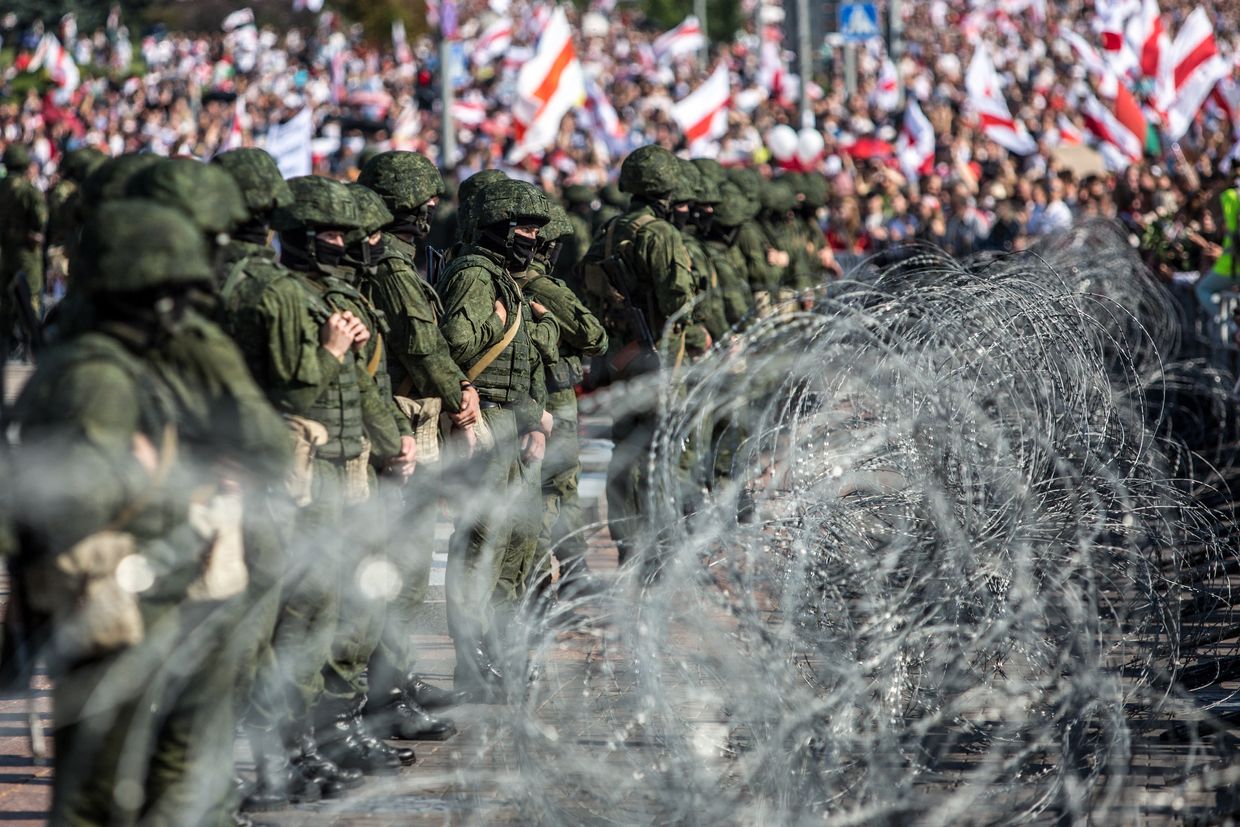
"I think Lukashenko understands that Russia is waiting for the right moment to replace him. He's deeply afraid of this and is now trying to play some kind of strange game with the West. He released some political prisoners to garner a 'favorable' image, but at the same time, he hasn't stopped the repressions. It's endless," Kseniya Halubovich, an exiled film director and journalist, told the Kyiv Independent.
"I think Lukashenko understands that Russia is waiting for the right moment to replace him."
Komar was among those detained during the 2020 protests, having attended a rally organized in solidarity with opposition leader Maria Kalesnikava, who had been arrested just days prior.
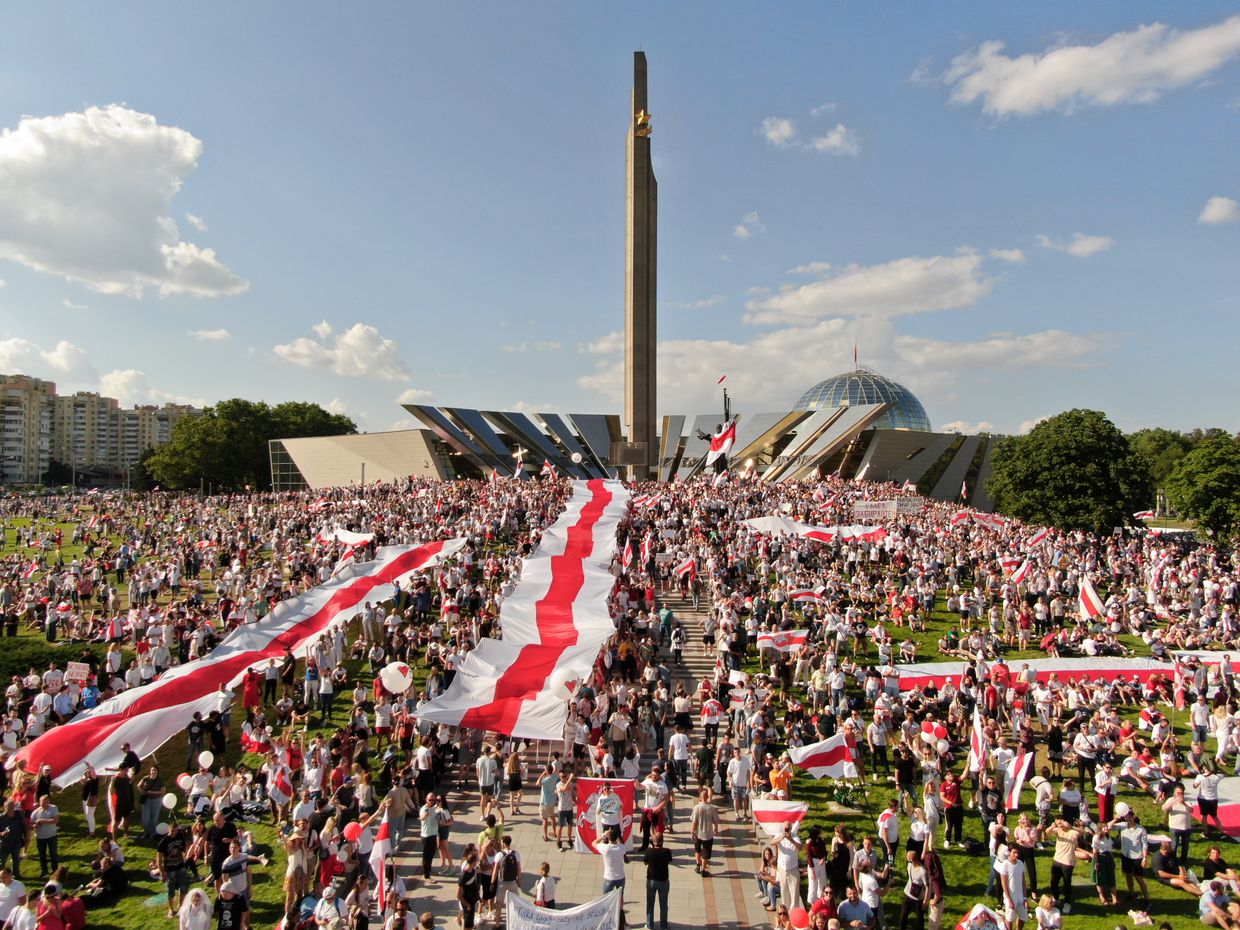
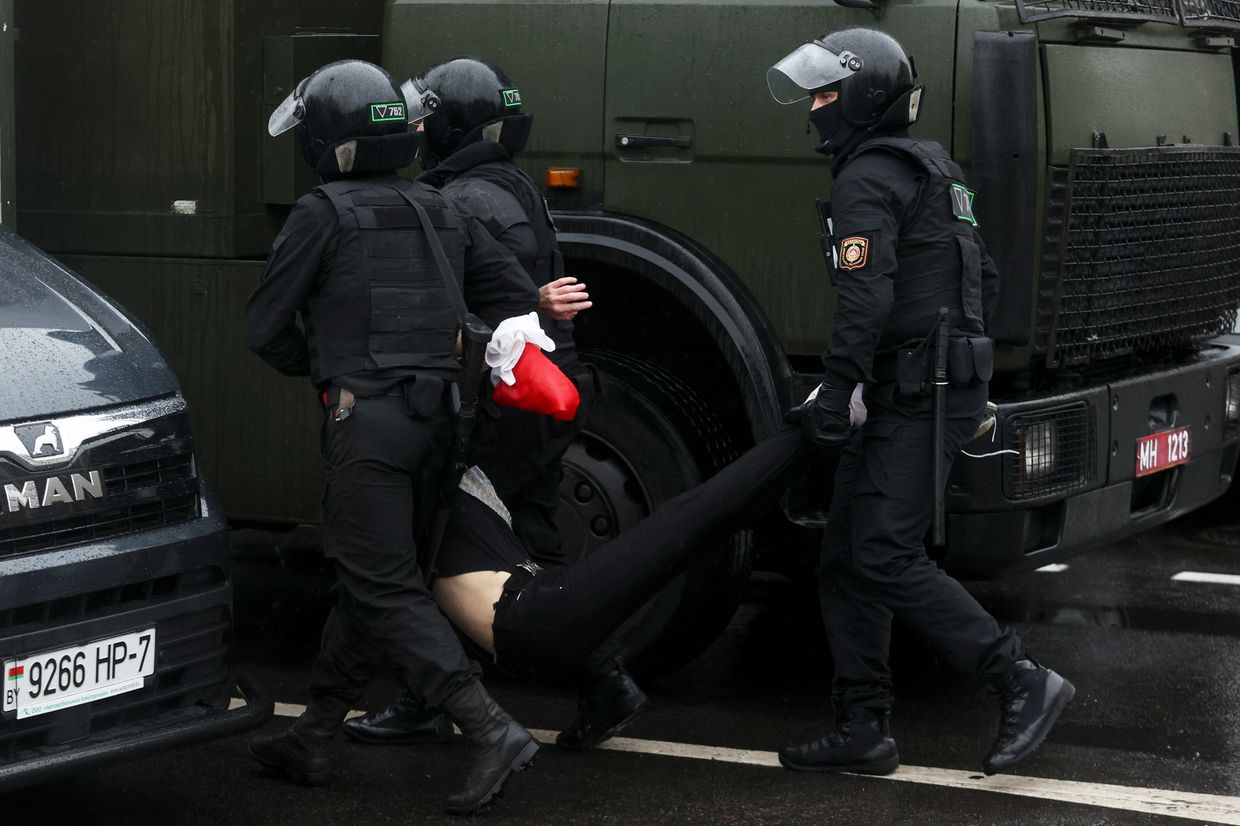
The rally escalated when the women protesters tried to prevent the police from arresting the men. Komar spent nine days in jail and, by her own account, considers herself lucky to have been released.
"It was still a relatively mild phase of the political crackdowns back then. I am one of over 50,000 Belarusians who have endured detentions and imprisonment," Komar said.
"Since then, repression (against pro-democracy Belarusians) has only intensified. Every day, hundreds of people lose their jobs, face home searches, are summoned for interrogations, or are sentenced to days, weeks, months, and even years in prison. The punishment machine has not ceased for a single day since the summer of 2020."
Opposition leader Kalesnikava has been behind bars for over four years, as are those who attempted to challenge Lukahsenko on the ballot in 2020, including Viktar Babaryka and Siarhei Tsikhanouski.
“Prison is for people who have opened their mouths too wide and who have broken the law. Don't you have prisons in Britain and America?” Lukashenko countered when asked about jailed opposition figures in a recent interview with the BBC.
Reflecting on the days immediately following the 2020 election, Halubovich recalls the pervasive sense of fear that hung in the air. On the night following the election, as she and others waited outside her school for election results, some panicked and fled at the sight of the police.
An internet shutdown made it difficult to communicate properly, get news, or coordinate — not to mention get news of what was happening to the outside world.
"The 'point of no return' for me came the night when the police released some of those who had been arrested and tortured in the first days," Halubovich said.
"I spent the entire night outside Akrestina prison — the most terrifying place in Belarus — where people were released by morning, horribly beaten. Some of them were too afraid to even sit in an ambulance, it was like they were half-mad after being tortured."
After several weeks, the protests began to lose their momentum. From every march she attended beginning in September 2020, Komar recalled beginning to sense a lack of clear strategy among the movement and felt that it was often unclear what the right course of action should be.
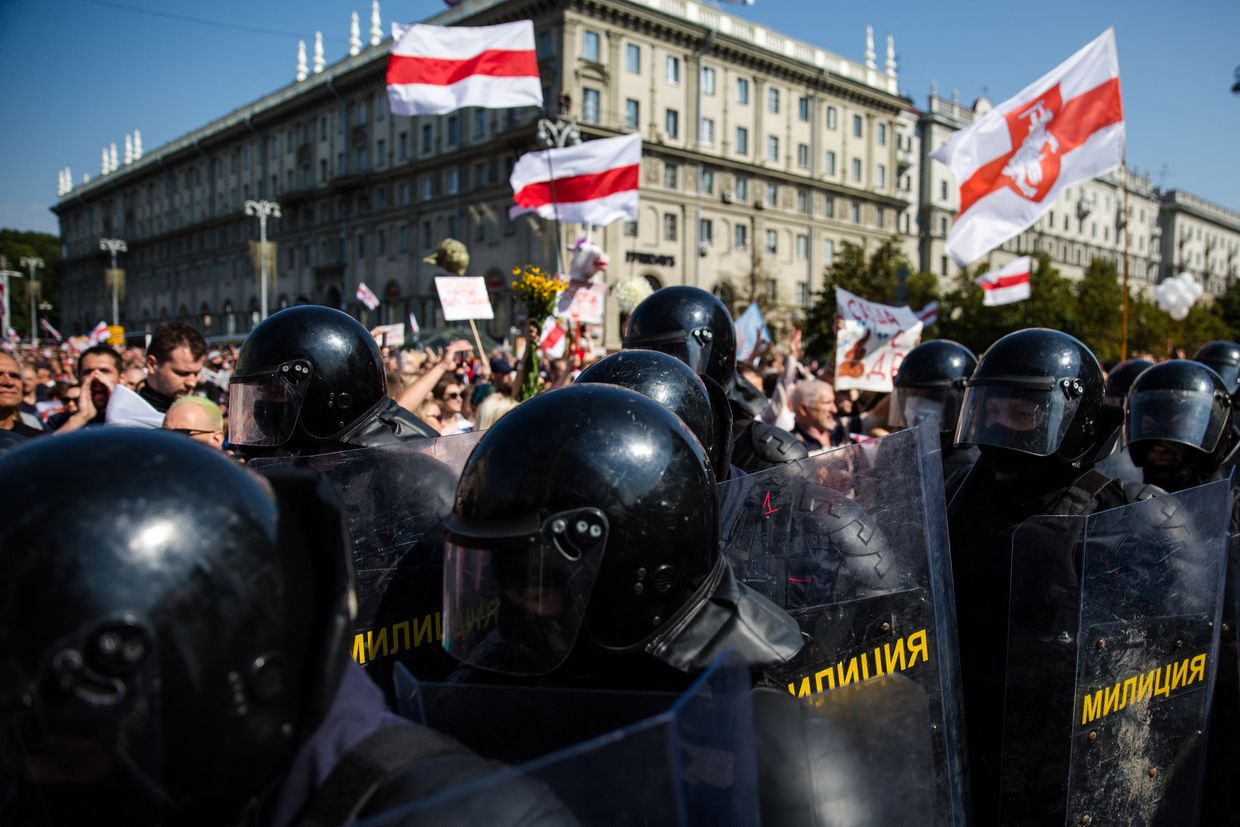
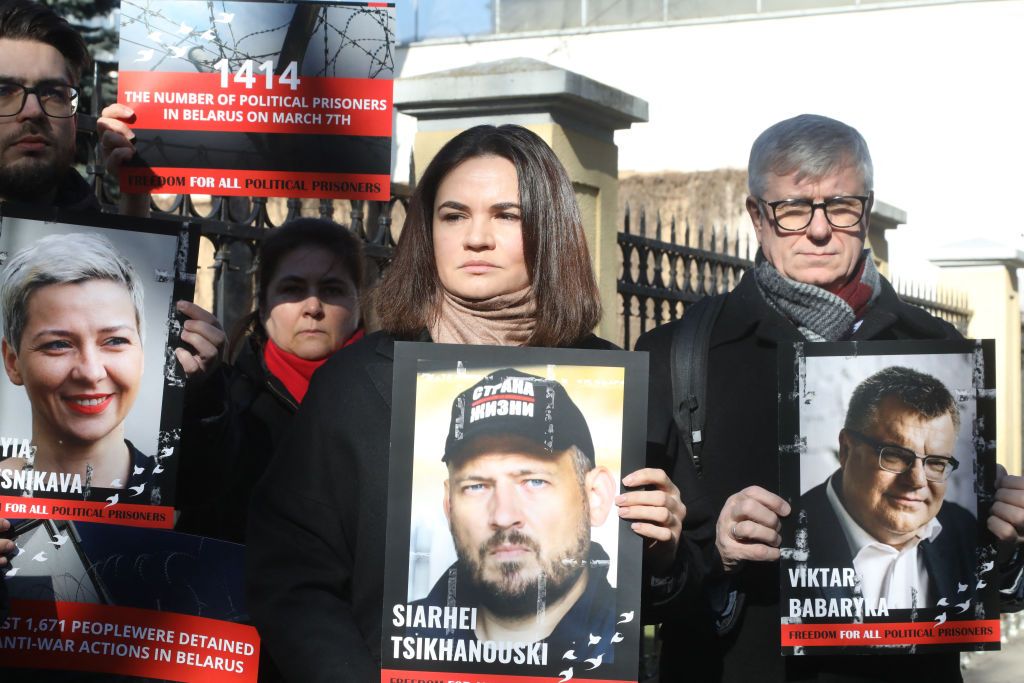
"Still, I kept joining the marches and protests until early 2021. It was simply the need to keep going — because to stop would have meant letting down all the people still behind bars in Belarus," Komar said.
"I remember one of the final neighborhood marches, feeling exhausted and desperate, but thinking of Mikita Zalatarou, the 17-year-old political prisoner with epilepsy who was tortured in prison. The drive to do something to free him became my only fuel."
The regime's relentless brutality against those who opposed Lukashenko highlights the immense challenges the movement faced from the onset.
"Unfortunately, we weren't ready to seize the opportunities that briefly arose during the moment of disarray among (those in power)," Alina Rudina, a Belarusian journalist now living in Ukraine, told the Kyiv Independent.
"Never again can we underestimate the enemy's cruelty and what they are willing to do to maintain their power."
Moving away from Russia
Over 30 years into his reign, Lukashenko seems poised to remain in power for the foreseeable future, but many of the Belarusians who took part in the 2020 protests hesitate to look back on that period as a total defeat.
For pro-democracy Belarusians, the events of 2020 were largely a moment of national awakening — one that reignited a sense of independence, rekindled pride in their language and history, and fortified their resolve to break free from Russia's influence over their country.
Under Lukashenko's rule over the past three decades, Russia's cultural and political reach remained entrenched in Belarusian society. However, the ongoing crisis has provided Belarusians in exile with an opportunity to assert the distinctiveness of their language and culture, challenging years of Russification and reaffirming their national identity.
"My sense of identity is more Belarusian now than it was before 2020. I make a conscious effort to avoid reading or watching anything Russian, and I'm grateful that my mind feels so clear and free from that imperialistic influence," Halubovich said.
For those Belarusians who have sought refuge in wartime Ukraine, this choice of language holds even greater significance.
Rudina, who has lived in Ukraine for nearly five years, finds that her new home has helped to foster an environment that has allowed her to rediscover the Belarusian language, which she now uses daily in both her personal and professional life.
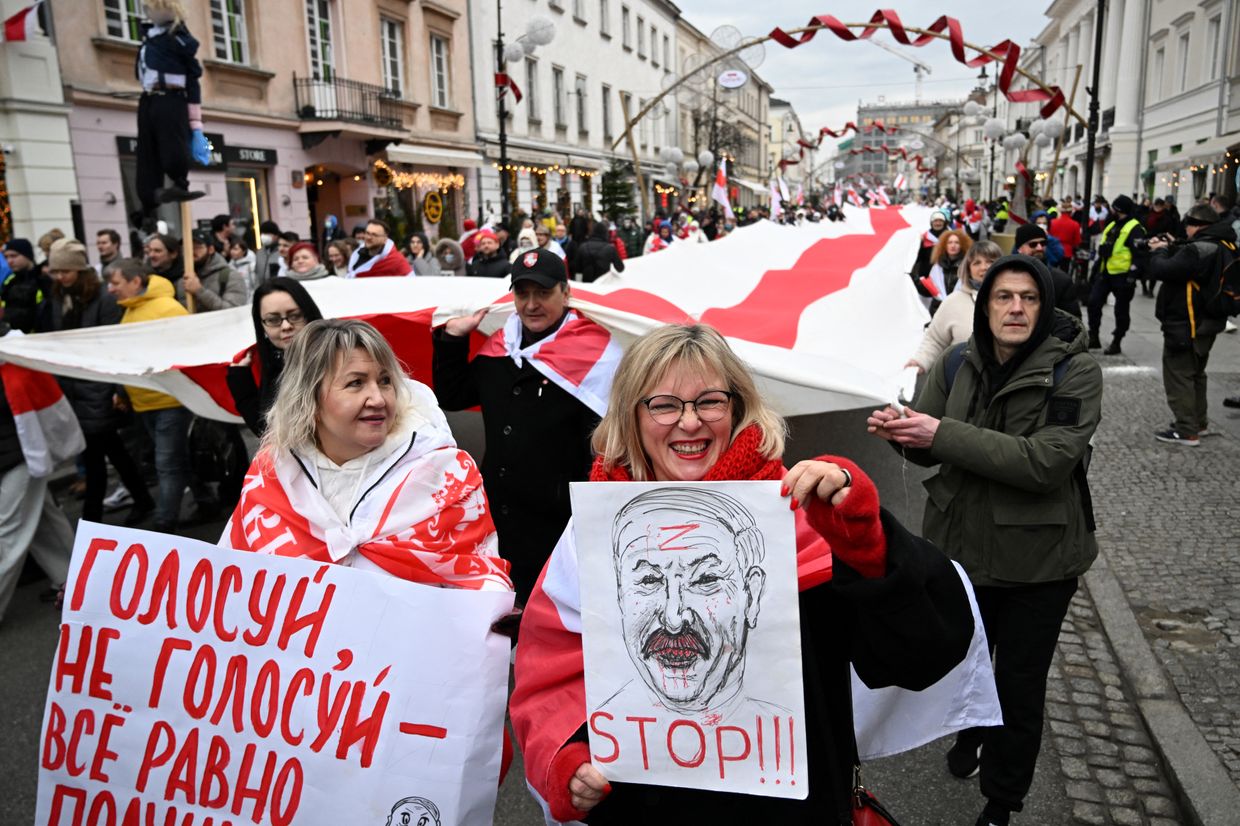
She also devotes her time in exile to learning how independent Ukrainian media is developing to better understand what pro-democratic Belarusians can do to help counter Russian propaganda.
"After being in Ukraine and living through the full-scale invasion, I am convinced that Belarusians need a certain degree of Russophobia and radical rejection of anything Russian," Rudina told the Kyiv Independent.
"Only this can become a vaccine for the future, preventing the country's absorption and the loss of Belarusian identity."
At the same time, hundreds of thousands of Belarusians in exile must grapple with the uncertainty of life abroad and thoughts of when they will ever be able to return home.
"The identities I once took pride in, like being a writer or an activist, now feel distant," Komar said.
"More and more, I find myself thinking that what truly matters is simply being a decent human."

Note from the author:
Hi, this is Kate Tsurkan. Thank you for taking the time to read this article.
The Belarusian people's ongoing struggle for a better future is both courageous and inspiring. Despite bravely facing Lukashenko's harsh authoritarian regime, their efforts receive far too little attention. They deserve greater recognition and our unwavering support.
If you found this story important please consider supporting our reporting.













